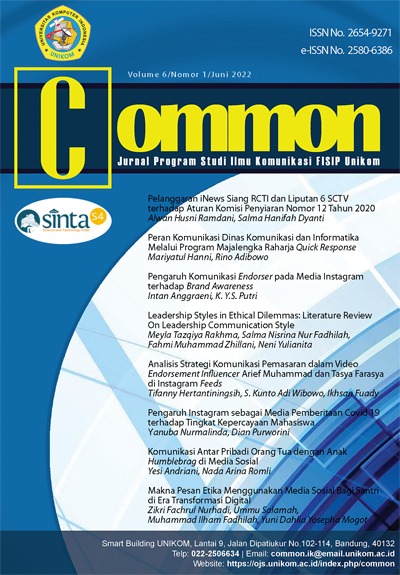MEANING OF ETHICAL MESSAGES USING SOCIAL MEDIA FOR STUDENTS IN THE ERA OF DIGITAL TRANSFORMATION
Main Article Content
Abstract
This research is motivated by the phenomenon of the rapid flow of information circulating on social media in the digital transformation era, and along with the decline in ethics among teenagers. In line with this, pesantren is a place where teenagers make self-improvement ranging from ethics to religious norms. The purpose of this study is to explain the motives, experiences, and meanings of ethical messages using social media. This study uses an approach approach with phenomenological theory which has the assumption that humans actively interpret their experiences by giving meaning to the things they experience. Data collection techniques used in this study were observation, in-depth interviews, and literature study. The informants in this study were 3 students and 2 alumni of the Darul Arqam Islamic boarding school as well as 4 resource persons from Islamic boarding school leaders, BK teachers, religious scientists, and technology experts. The results of this study indicate that the motive for ethical messages using social media is divided into two, namely the motive for maintaining the ethical attitude of students in accordance with the teachings of the Qur'an and Hadith. The motive because of the ethical message of using social media is that there are many bad influences that come from social media. The experiences experienced by students include negative experiences such as cyber bullying that makes it easy to be consumed by false information or hoaxes, and the positive experiences obtained by students are the fast flow of information on social media, students can easily get the information they ordered. Santri also interpret ethical messages using social media more carefully in social media, meaning that there are ethical messages that students can interpret and implement in the daily lives of students.

